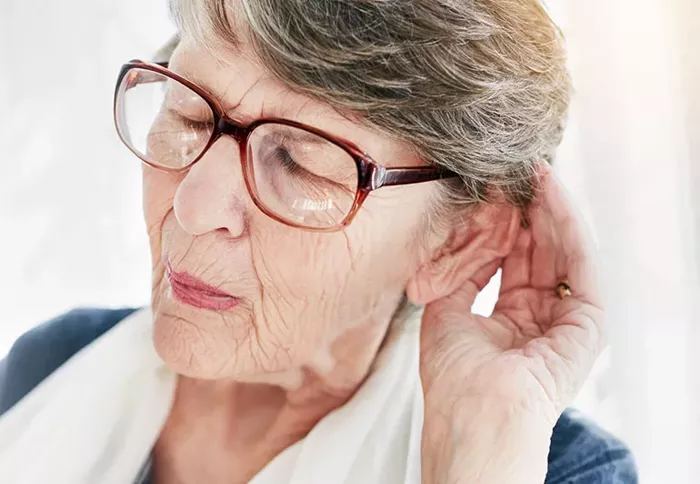As people age, cognitive decline becomes a significant concern, impacting memory, spatial awareness, and problem-solving abilities. However, new research suggests that good hearing and vision can play a crucial role in maintaining cognitive health in older adults.
In her doctoral thesis at Örebro University, Andreea Badache, a researcher in disability science, explored the connection between cognitive abilities and sensory health in older adults. The study underscores the importance of maintaining good hearing and vision to support cognitive functions such as information processing and memory retention.
“By ensuring good hearing and vision in older adults, we can enhance their independence,” said Badache. “This can have a positive impact on their ability to perform everyday tasks and overall quality of life.”
The Impact of Sensory Health on Cognitive Function
According to Badache’s research, nearly 40% of people in Sweden aged 65 and over experience hearing difficulties, and about 10% suffer from visual impairments. The study examined how these sensory changes, which naturally occur with age, are linked to cognitive health.
“Both our cognitive abilities and our hearing and vision change over time, and the connection between them becomes clearer as we age,” Badache explained. “This suggests that interventions like hearing aids and eye surgeries could slow cognitive decline, a natural aspect of aging.”
Badache’s findings could have far-reaching implications for public health policy, providing valuable insights for healthcare professionals and policymakers aiming to enhance the well-being of older populations.
Improved Quality of Life in Sweden and Denmark
In Sweden and Denmark, advancements in healthcare have led to improved outcomes for older adults. These improvements are evident in their ability to perform everyday tasks such as eating, dressing, and cleaning. The research links these positive changes to cognitive health, educational level, and sensory capabilities.
“For example, individuals with higher education tend to have fewer issues with hearing and vision impairments,” Badache noted. “This suggests that education can play a role in preserving sensory health and, by extension, cognitive function.”
Interestingly, Badache’s study revealed gender differences in sensory health. Visual impairments were found to be more prevalent among women, while hearing difficulties were more common in men.
Redefining Successful Aging
In addition to examining sensory health, Badache’s research also delved into how older individuals define “successful aging.” The study, which analyzed data from the Survey of Health, Ageing, and Retirement in Europe (SHARE), found that people aged 75 and older prioritize health and psychosocial factors when defining successful aging. For many, a peaceful, pain-free death was seen as an important aspect of aging well.
“As people age, their definitions of successful aging evolve,” Badache explained. “The challenges faced by a 75-year-old are different from those faced by a 65-year-old.”
The SHARE survey, which has gathered data from over 13,000 people in Sweden and 10,000 in Denmark, provided a comprehensive look at the economic, social, and health factors influencing aging in Europe.
Conclusion
Badache’s research highlights the importance of addressing sensory impairments as part of a broader strategy for maintaining cognitive health in older adults. By investing in hearing and vision care, policymakers and healthcare professionals can potentially improve the quality of life for older populations and help slow cognitive decline, ultimately enhancing their independence and well-being.
Related topics:
Decline in Physical Activity Among Young Adults, Study Finds
Hearing Loss Linked to Increased Heart Failure Risk, Study Finds
Mindfulness and CBT Offer Hope for Opioid-Treated Chronic Back Pain


